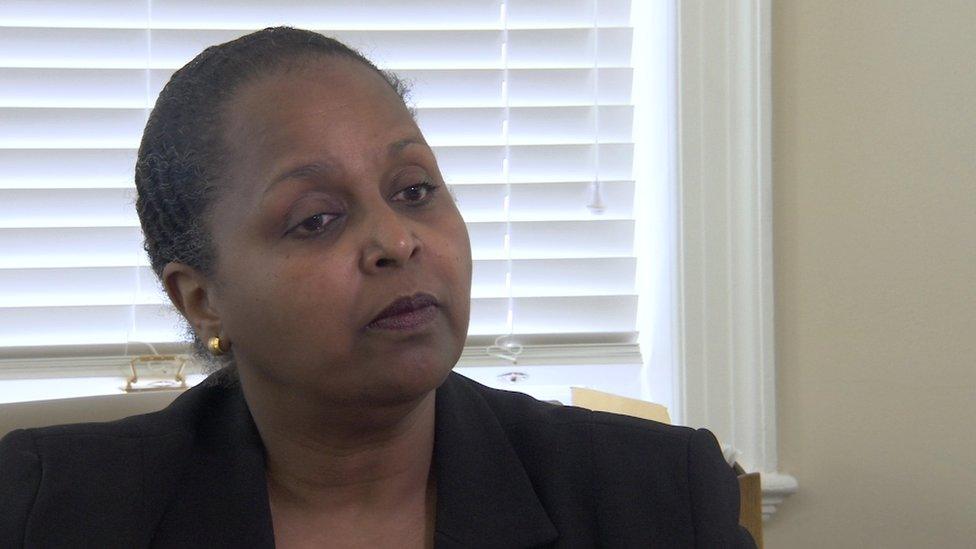Vaginal mesh surgery: Shock as women go to England for care
- Published

Dr Sohier Elneil said she was surprised that the women had to travel to seek help
A leading gynaecologist said she is "astonished" that women in Northern Ireland had to seek help in England after "shocking complications" from vaginal surgery.
The women had mesh or tape implants - devices used to treat organ prolapse and urinary incontinence.
These conditions can be common after childbirth.
Some women now have difficulty walking or sitting, others had to give up work and looking after their children.
BBC News NI can reveal that a number of clinicians in Northern Ireland were sufficiently alarmed by reports of complications in other jurisdictions that they are conducting an evaluation of patients who have had the operation in Northern Ireland.
In a statement, the Department of Health said it is "essential that clinicians that conduct these operations carry out audits to ensure they are performing to the highest possible standards".
Dr Sohier Elneil, a consultant urogynaecologist in Harley Street has seen or been in contact with more than 10 women from Northern Ireland.
"I was astonished because these are young women, in their late 30s or 40s or early 50s," she said.
"The shock for me was... they are unable to function as a mum, a wife or as a member of society and I think that really hit home."

Dr Robin Ashe is chairing the audit into mid-urethral tapes in Northern Ireland
Dr Elneil said she was surprised that the women had to travel to seek help.
"I think it was a bit of a shock for a lot of us in the field just how bad the situation was and, as Northern Ireland is part of the UK, I am not surprised that the problems exist there.
"It was just people hadn't realised it was as big a problem as it is currently.
"I would have expected that they would have had access to the care they needed as I know there are many great and capable doctors there."
Dr Robin Ashe, a retired gynaecologist, is chairing the audit into mid-urethral tapes in Northern Ireland.
He described the situation regarding the operation as "evolving".
'Pathway of care'
"It's come to light in the past number of years and, for us, the UK and the Scottish experience has been telling," he said.
"So, a group of clinicians came together and thought - let us look at Northern Ireland and see are we in the same boat, we need to find out where we stand.
"I will say this though, that the vast majority of patients undergoing the operation have a straightforward progress and do not experience problems."
The audit is studying a group of women in Northern Ireland who had mesh implants in 2013.
It is examining their preparation for the operation, consent issues, and any complications during and immediately afterwards.
The audit would also like to look at longer-term implications but has not yet received permission to do so.
Dr Ashe said the evidence shows that the mesh itself is safe to use.
One woman who paid privately to have her mesh removed said her life has been transformed. She does not want to be identified because she works for the police.
"I no longer feel like a 90-year-old woman - the stiffness, the pain in my pelvic area, hips and my groin and my lower back has reduced massively.
'Fury they cannot get help'
"In fact the back pain has gone, my psoriasis has gone from nails and head, I don't use steroids any more," she said.
"I feel more positive and feel that over the next few months that I will improve. I would hope I will get into doing some form of exercise since I haven't been able to do that for years."
For Dr Elneil, it is important that the women's voices are now heard
"I would like to see a concerted effort by us as a professional group, by the regulatory authorities, to work with us and with the patients.
"Because one of the issues the patients face is not the anger about the device directly, but the fury they cannot get help when the problems arise," she said.
"So if we had a very well stipulated pathway of care put in place when things go wrong, that would go a long way to making patients feel they are being listened to and they are getting the right access to care they need."
- Published26 June 2017
